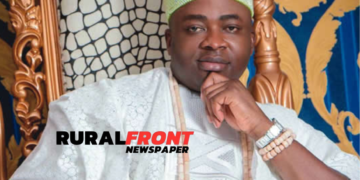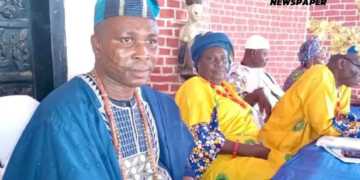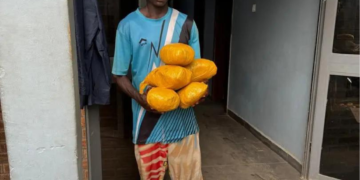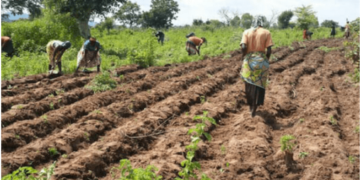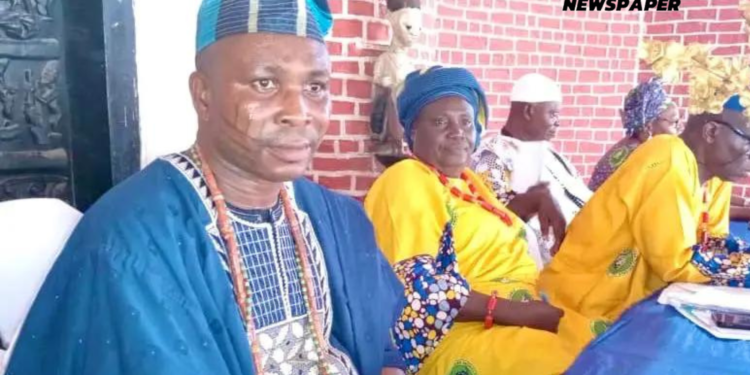The President of the International Council for Ifa Religion (ICIR), Dr. Fayemi Fatunde Fakayode, has hinged the survival of the Yoruba language and culture on the preservation and promotion of traditional religion (Isese).
Fakayode made this assertion yesterday, while delivering a lecture titled: “Yoruba Language and Culture, Yesterday, Today and Tomorrow,” at the Palace of Ooni of Ife, Oba Adeyeye Enitan Ogunwusi, during the 2024 Annual Cultural Festival organised by Egbe Akomolede ati Asa Yoruba, Nigeria, Ekun Ife (Association of Teachers of Yoruba Language and Culture, Nigeria, Ife Zone).
In a call for southwestern governors of Osun, Oyo, Ogun, Ondo, Ekiti and Lagos States to immediately commence process of changing the language of all textbooks used in primary and secondary schools to indigenous Yoruba language, ICIR emphasised that without traditional religious practices, the language, and its rich cultural heritage might face imminent extinction.
Fakayode hinted that the time has come for people to stop calling Yoruba language vernacular and make communication with the language a must at home, work and schools, as researches have shown that students taught any subject with mother tongue perform better than the one taught with foreign languages.
He further stressed that the Yoruba language, having secured a vantage position among global languages because of the acceptance of Ifa Religion across the world, will continue to grow and with time, supersede other languages.
“It is high time we decolonised ourselves by stop seeing our Language as vernacular and start communicating with our children in Yoruba, our mother tongue. According to research, there is no doubt that students taught any subject with mother tongue perform better than students taught with foreign language.”
The issue of Yoruba Language and Religion can be compared to a Computer whose hardware cannot be functioning without the software. In the case of Yoruba culture, Language and other components are hardwares while Yoruba Religion is the software on which other components rely.
Today, Yoruba Language is an International Language because, all the people who practice Yoruba Religion irrespective of color or race need to be versed in Ifa, the scripture which can only be rendered in Yoruba Language. As Arabic is the language of the holy Quran so is Yoruba the language of Ifá.
Therefore, as spread of Islam throughout the world makes Arabic international so is Yoruba Religion makes Yoruba Language international. This is because, once one accepts a religion, one automatically accepts the culture of the source of the religion.
It is pertinent for all Yorùbá to learn Ifa for it is the storehouse of Yoruba culture and tradition. I use this medium to call on all lovers of Yoruba Language to join hands in promoting Ìsẹ̀ṣe, the Yoruba Traditional Religion if truly they do not want Yorùbá language to go into extinction.
The future of Yoruba Language and Culture is promising because, it is witnessing renaissance. Yoruba religion is said to be in the sixth position among the religions of the world today. It is certain that as Yoruba Religion continues to grow, so will the language and culture continue.
The time has come for the five South-West governors to start an immediate process of changing the language of textbooks use to teach subjects like Physics, Chemistry, Biology, Mathematics and the rest to aid the relevance of the language and most importantly, improve the academic performance of our students.
In her opening speech, the Ife Branch Zone chairman of Egbe Akomolede ati Asa Yoruba, Erelu Olubunmi Ajayi, said the cultural day gave secondary and primary school students the opportunity to show and develop their talents as well as promote culture and tradition of the Yorubaland.
The event was a vibrant display of Yoruba heritage, with students dressed in traditional attire, performing dances, reciting poems, and engaging in various cultural activities. This not only helped in preserving the rich traditions of the Yoruba people but also instilled a sense of pride and identity among the younger generation. Ajayi emphasized the importance of such events in keeping the culture alive and relevant in today’s rapidly changing world.
Dr. Fakayode’s lecture was a clarion call to action, urging everyone to take responsibility for the preservation of their language and culture. He pointed out that the decline in the use of the Yoruba language in daily communication is a significant threat to its survival. He urged parents to speak Yoruba at home and encourage their children to do the same. Schools were also encouraged to incorporate more Yoruba language and cultural studies into their curriculum.
The lecture also highlighted the role of technology in preserving and promoting the Yoruba language. Fakayode suggested the development of Yoruba language apps, online courses, and digital libraries to make learning the language more accessible to people of all ages. He also called for the creation of more Yoruba language media content, such as television shows, movies, and music, to engage the younger generation and make the language more appealing to them.
The preservation of the Yoruba language and culture is not just about maintaining a connection to the past; it is also about securing a future where the rich heritage of the Yoruba people can continue to thrive. By promoting traditional religion and integrating it with modern technology and education, the Yoruba language can be revitalized and preserved for future generations.
The cultural festival at the Palace of Ooni of Ife was a testament to the resilience and vibrancy of the Yoruba culture. It brought together people from all walks of life, united by their shared heritage and a common goal of preserving their language and traditions. The event served as a reminder of the importance of cultural preservation and the role that each individual can play in ensuring that the Yoruba language and culture continue to flourish.
In conclusion, the survival of the Yoruba language and culture hinges on the preservation and promotion of traditional religion (Isese). By embracing their heritage and taking proactive steps to integrate it into modern life, the Yoruba people can ensure that their language and culture remain vibrant and relevant for generations to come. The call to action by Dr. Fakayode and the efforts of organizations like Egbe Akomolede ati Asa Yoruba are crucial in this endeavor. It is now up to the Yoruba people, their leaders, and the global community to heed this call and work together to preserve and promote the rich heritage of the Yoruba language and culture.





